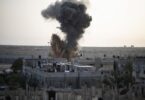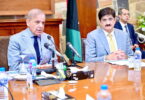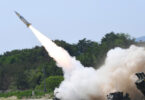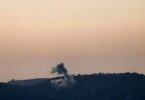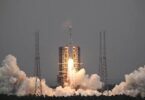ISTANBUL (Agencies): The death toll from the Turkiye-Syria earthquakes has climbed above 19,000 as rescuers race to save survivors trapped under debris in freezing weather. Turkish President Recep Tayyip Erdogan said the death toll in his country from Monday’s deadly earthquake had now reached 16,170, bringing the total fatilities in Turkiye and Syria to 19,362, The Guardian reported on Thursday.
State officials in Syria said earlier on Thursday that death-toll at government controlled areas stood at 1262, while 1930 had been reported dead at rebel held areas. Experts have said the toll of both dead and injured is expected to continue to rise sharply in the coming days. The Syrian Civil Defence group continued search operations through the night in rebel-held parts of Syria as the rescue effort crossed the 72-hour mark that disaster experts consider the most likely period to save lives.
“We are racing against time. Every minute counts,” tweeted the opposition group, who are also known as the White Helmets. The group said hundreds of people remain trapped in the rubble in the town of Jandires in the province of Aleppo. Access to Twitter in Turkey has been restored, the Netblocks internet observatory has said. “The restoration comes after authorities held meeting with Twitter to ‘remind Twitter of its obligations on content takedowns and disinformation’,” Netblocks said.
The Turkish president has admitted to problems with his government’s initial response to the devastating earthquakes in southern Turkey, amid anger from those left destitute and frustrated over the slow arrival of rescue teams, Al Jazeera reported. “Of course, there are shortcomings,” Erdogan said during a visit to the city of Kahramanmaras, one of the hardest hit spots. “The conditions are clear to see. It’s not possible to be ready for a disaster like this.”
Temperatures in the quake-stricken Turkish city of Gaziantep plunged to minus five degrees Celsius (23 degrees Fahrenheit) early on Thursday but thousands of families spent the night in cars and makeshift tents, too afraid to return to their homes – or banned from doing so. Parents walked the streets of the city carrying children in blankets because it was warmer than sitting in a tent. “When we sit down, it is painful, and I fear for anyone who is trapped under the rubble in this,” said Melek Halici, who had wrapped her two-year-old daughter in a blanket as they watched rescuers working late into the night. “Eventually, we will have to go to the tent but I don’t want to,” she told the AFP news agency. “I can’t bear the cold but nor can I think about going back to our apartment.”
Reuters has this heartbreaking story from Turkey’s Hatay, where the agency’s photographer Umit Bektas witnessed rescuers trying to pull Abdulalim Muaini out from the rubble of his home. Abdulalim’s legs were trapped under a large slab of concrete but he was conscious and able to talk to his rescuers. Close beside him lay his wife, Esra. But the rescue had come too late for her. The magnitude 7.8 and 7.6 earthquakes that struck Turkey and Syria on Monday are classified as “major” on the Richter scale. But what does it mean? How do earthquakes happen and how are they measured?
Meanwhile, the UN insisted Thursday on the need to avoid “politicisation” of aid to earthquake victims in Syria, which faces international sanctions, and urged Washington and Brussels to ensure there were “no impediments”. “Emergency response must not be politicised,” Geir Pedersen, the UN Special Envoy for Syria, told reporters in Geneva, saying aid needed to get to areas controlled by Damascus as well as those held by rebels. Monday’s massive earthquake flattened entire sections of major cities in Turkiye and Syria, killing more than 17,100 people, injuring thousands more and leaving many more without shelter in the winter cold.
The situation is of particular concern in Syria, which has been ravaged by more than a decade of civil war and where at least 3,162 people have been killed in the quake. “We need to do everything to make sure that there are no impediments whatsoever to the life-saving support that is needed in Syria,” Pedersen said. Damascus has been hit by more than a decade of economic sanctions, and there have been calls for them to be temporarily lifted to facilitate the arrival of aid.
Others meanwhile highlight that sanctions are not designed to impede aid. When asked about this, Pedersen said he had been “discussing the issue, in particular with representatives from the United States and from the European Union”. “They assure me that they will do whatever they can to make sure that there are no impediments to assistance coming to Syria to help in this operation,” he said.
The rebel-held areas of Syria near Turkey’s border are in a particularly dire situation since they cannot receive aid from government-held parts of Syria without Damascus’s authorisation. At the same time, the sole border crossing used to shuttle life-saving aid from Turkey into conflict-ravaged Syria has seen its operations disrupted by the deadly earthquake. A first aid convoy managed to cross there Thursday, and Pedersen voiced confidence that “there will be obviously more assistance coming”.
“Our immediate asks are two: access and resources. We need life-saving aid. It’s desperately needed by civilians, wherever they are, irrespective of borders and boundaries,” he said. “We need it urgently, through the fastest, most direct and most effective routes,” he said. Humanitarian aid in rebel-held areas usually arrives through Turkiye via a cross-border mechanism created in 2014 by a UN Security Council resolution.
But it is contested by Damascus and its ally Moscow, and under pressure, the number of crossing points has been reduced over time to just one from four. Asked whether it would be possible to open more border crossings to get aid through, Pedersen told AFP that “the Turks are in the process of opening more crossings”. But “those are not border crossings that have been approved by the UN, via the Security Council, so that means that it is difficult for the UN to use them”, he said. Pedersen suggested though that countries might be able to do so.


